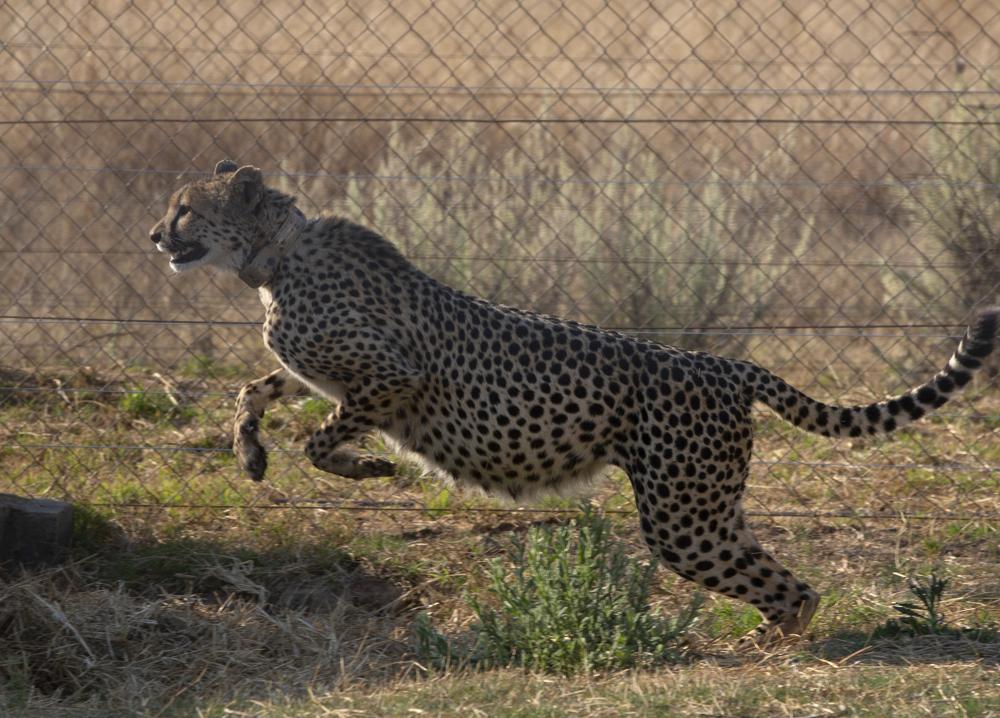India plans to import second group of cheetahs after successful trial
Cheetahs in India’s Kuno are successfully feasting on spotted deer, sambar deer, wild boar, peafowl, rabbits and Asian antelope

Your support helps us to tell the story
From reproductive rights to climate change to Big Tech, The Independent is on the ground when the story is developing. Whether it's investigating the financials of Elon Musk's pro-Trump PAC or producing our latest documentary, 'The A Word', which shines a light on the American women fighting for reproductive rights, we know how important it is to parse out the facts from the messaging.
At such a critical moment in US history, we need reporters on the ground. Your donation allows us to keep sending journalists to speak to both sides of the story.
The Independent is trusted by Americans across the entire political spectrum. And unlike many other quality news outlets, we choose not to lock Americans out of our reporting and analysis with paywalls. We believe quality journalism should be available to everyone, paid for by those who can afford it.
Your support makes all the difference.India is making preparations to receive a second batch of a dozen African cheetahs in the coming weeks after what officials described as a successful trial reintroduction.
Officials have said that the next tranche of African wild cats is expected to land in central India’s Kuno National Park in the last week of January or first week of February.
The Indian team tasked with bringing the cheetahs from South Africa were due to depart on 13 January but have not left, officials told The Independent, without specifying the cause for the delay.
“Due to multiple reasons, we are witnessing a delay in getting more cheetahs to Kuno this month, but we hope to expect the transfer to be completed by this month’s end or by early February,” said Prakash Verma, the divisional forest officer of Kuno National Park.
But the official said that the Indian authorities are hopeful for the translocation to be done soon.
According to a report, South Africa is yet to sign the memorandum of understanding with India required to share cheetahs as part of the project.
There has been no official confirmation from the South African president’s office on the signing of the agreement, which has been in the pipeline for months now and moving slowly alongside the partially fulfilled translocation project from Namibia.
Four months ago Indian prime minister Narendra Modi cranked open crates containing Namibian cheetahs and released them into a protected and monitored enclosure in Kuno to mark his 70th birthday, part of a contentious translocation project.
The eight Namibian wild cats, which include three male and five female adult cheetahs aged between two and five-and-a-half years old, were seen roaming around the compact enclosure built to help them acclimatise to their new home in central Madhya Pradesh state.
Now at home in India, the cheetahs have successfully adapted to India’s air and the different prey base available, Mr Verma told The Independent.
Among the cheetah’s favourite prey are spotted deer, sambar deer, wild boar, peafowl, rabbits and Asian antelope (Nilgai), officials monitoring the project said.
The highest number of kills by far have been spotted deer, followed by the larger and more challenging sambar deer, one rabbit and one youngling of the large Asian antelope. The cheetahs have also been spotted feasting on the peafowl present in the park.
The cheetahs have established themselves surprisingly quickly and easily in their 5 sq km enclosure within the park, said a forest department official monitoring the project.
“The situation was like a cakewalk for us. We thought it would be difficult but it turned out to be a smooth operation,” the official told The Independent on condition of anonymity.
Mr Verma said that despite it being one of the leading concerns for the project, the cheetahs have not suffered sicknesses or health setbacks requiring supplements to be given.
“I can safely sense that the cheetahs are adapting well after quarantine inside a smaller enclosure,” he said.
Discussions are now being had as to when the big cats will be ready for release into the larger Kuno national park spanning 1250 sq kms.
India’s Project Cheetah has been seen as controversial due to the unpredictability of introducing African cheetahs to an entirely new environment. Critics have argued the project does not truly represent reintroduction, as the cheetahs found today in Namibia are a distinct genetic subspecies to those that once roamed India.





Join our commenting forum
Join thought-provoking conversations, follow other Independent readers and see their replies
Comments